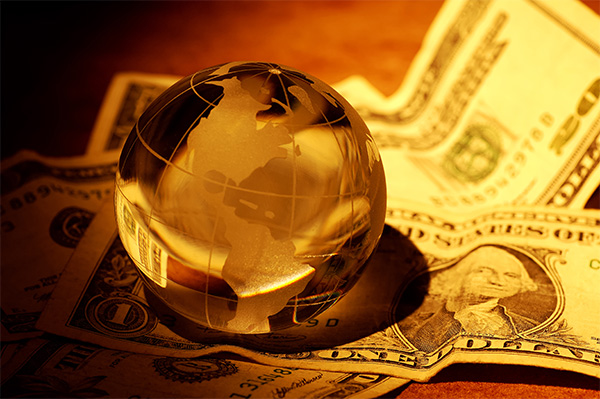
Everything in the world seems to conspire to keep the dollar’s value aloft. But will that persist forever? Of course not.

By Walid L. Petiri
The dollar traditionally is a haven in a turbulent world. That sparked a huge rally in the greenback lately, rising 23% from mid-2014 to March. But after March, it slumped almost 6% until turning around in May.
So what happened? The rally ended because of downbeat U.S. economic news. First quarter gross domestic product, for instance, slid 0.2%, which was an upward revision from 0.7%. Still, it was negative. True, the GDP outlook for the rest of the year is better, but hardly booming. FactSet research projects a drop in Standard & Poor’s 500 second-quarter earnings of more than 4%. Lower oil prices are a factor, although the energy sector is improving a bit.
The paradox that could undermine the U.S., is the dollar’s strength, diminishes profits earned overseas by American corporations. Our economic expansion is six years old too. Once it finally turns downward, the dollar could likely falter.
Meanwhile, the world situation is the greenback’s friend today. Troubles with the Chinese stock market as its economy slows. Low eurozone rates to combat stagnation there and ease Greece’s woes. Federal Reserve plans to boost U.S. interest rates. These make investing in dollar-denominated securities and other items look even more attractive.
A strong dollar means that goods manufactured overseas are cheaper to buy and, when you travel, your dollar buys more. The euro, in some assessments, remains expensive, and the economic and political problems of the region should keep the currency under pressure and force it down more. In contrast, the U.S. economic recovery is more robust and durable, acting as an important support for the dollar.
Further, with the rapid decline of a China stock market long fueled more by speculation than current fundamentals, it seems that nothing can stop the dollar’s and U.S. economy’s ascension.
Or are the global power dynamics about to shift, the dollar’s detriment?
China’s stock market has suffered amid slowing economic growth, leading the government to support stock investors, a radical move. That was part of the cold wind that buoyed the dollar. Still, Beijing’s moves appear to be working. The most recent GDP figures showed a 7% increase – down from its customary double-digit rate, yet still much better than people feared.
In Europe, once again, things appear to be resolved, for now. Many feared the chaos of a Grexit, or Greek exit from the eurozone. This country has more debt to more creditors than it could ever possibly pay back. Yet what happened? The creditors extended it another bailout as the Greek parliament approved more austerity measures. And let’s face it: Greece is not much of a force on the global scene. Greece’s GDP is a mere 0.38% of the world economy. However Spain is the 13th largest economy in the world, Italy is the 9th and both have debt issues of their own. Bet that they both will be watching closely to see what concessions are given to the Greeks.
At the same time, the European Central Bank is instigating negative interest rates to try and force banks to lend and citizens to spend in hopes of keeping Europe out of a prolonged recession. This may be working. Forecasters are raising their outlooks for the Continent.
When will the Fed finally raise rates? While Fed Chair Janet Yellen says it will be sometime this year, will it? We have been told over and over again the U.S. Federal Reserve is on its way to raising rates short term interest rates from 0%-0.25% target to more normal level.
Will bond investors soon suffer major losses, once the Fed hikes rates? In the last few years, Bill Gross, Jim Rogers and other pundits have warned of a bond bubble. While it has yet to occur – the broad bond market yielded an annualized 4.42% from 2010 to 2014 – the threat remains.
Notice, however, that a rate raise keeps getting postponed. The prospect of higher rates has helped keep the dollar high. How long can investors remain patient?
Bank on one thing: The dollar’s supremacy is not guaranteed. Other economies, like China’s, are growing faster than ours and they have a much larger population.
Walid L. Petiri, AAMS, RFC, Financial Management Strategies, LLC, www.fmsdavisors.com, 410-779-1276

